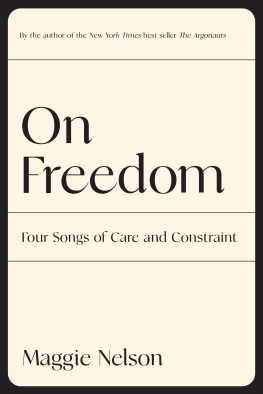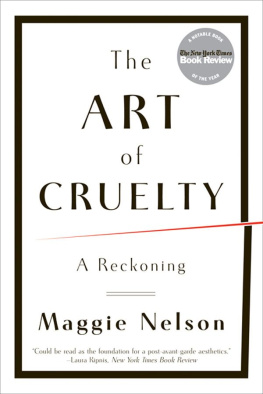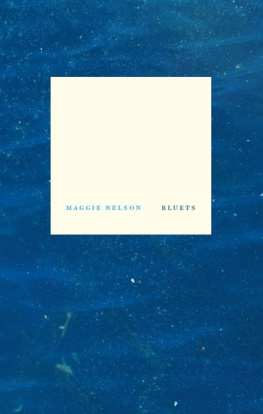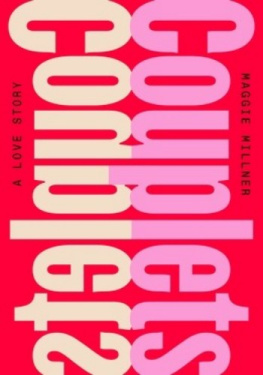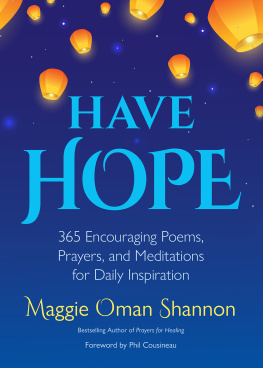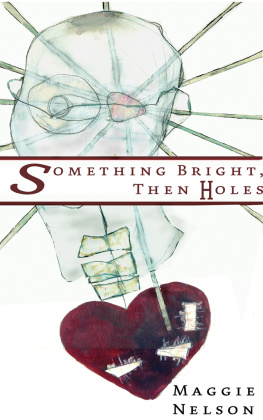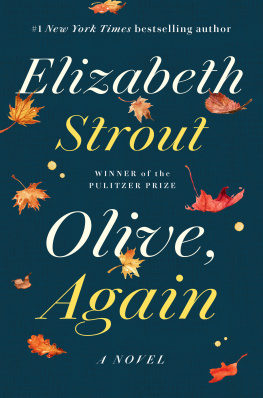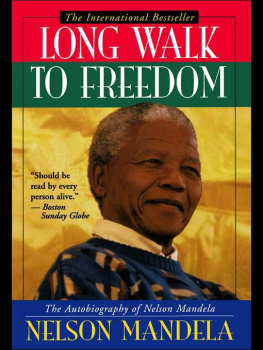The author and Graywolf Press have provided this e-book to you for your personal use only. You may not make this e-book publicly available in any way. Copyright infringement is against the law. If you believe the copy of this e-book you are reading infringes on the authors copyright, please notify Graywolf Press at: us.macmillanusa.com/piracy.
Leviathan by George Oppen, from New Collected Poems , copyright 1965 by George Oppen. Reprinted by permission of New Directions Publishing Corp.
This publication is made possible, in part, by the voters of Minnesota through a Minnesota State Arts Board Operating Support grant, thanks to a legislative appropriation from the arts and cultural heritage fund. Significant support has also been provided by Target Foundation, the McKnight Foundation, the Lannan Foundation, the Amazon Literary Partnership, and other generous contributions from foundations, corporations, and individuals. To these organizations and individuals we offer our heartfelt thanks.
All rights reserved.
Leviathan
Truth also is the pursuit of it:
Like happiness, and it will not stand.
Even the verse begins to eat away
In the acid. Pursuit, pursuit;
A wind moves a little,
Moving in a circle, very cold.
How shall we say?
In ordinary discourse
We must talk now. I am no longer sure of the words,
The clockwork of the world. What is inexplicable
Is the preponderance of objects. The sky lights
Daily with that predominance
And we have become the present.
We must talk now. Fear
Is fear. But we abandon one another.
GEORGE OPPEN, 1965
for Iggy
already & forthcoming
On Freedom
FOUR SONGS OF CARE AND CONSTRAINT
Introduction
STOP HERE IF YOU WANT TO TALK ABOUT FREEDOM A CRISIS OF FREEDOM THE KNOT ENTANGLEMENT/ESTRANGEMENT FREEDOM IS MINE AND I KNOW HOW I FEEL PATIENT LABOR
STOP HERE IF YOU WANT TO TALK ABOUT FREEDOM
I had wanted to write a book about freedom. I had wanted to write this book at least since the subject emerged as an unexpected subtext in a book of mine about art and cruelty. I had set out to write about cruelty, then found, to my surprise, freedom coming through the cracks, light and air into crueltys stuffy cell. Once exhausted by cruelty, I turned to freedom directly. I started with What Is Freedom?, by Hannah Arendt, and began to amass my piles.
But before long I diverted, and wrote a book about care. Some people thought the book about care was also a book about freedom. This was satisfying, as I, too, felt this to be the case. For some time, I thought a book on freedom might no longer be necessarymaybe not by me, maybe not by anyone. Can you think of a more depleted, imprecise, or weaponized word? I used to care about freedom, but now I mostly care about love, one friend told me. Thats a white word, said another.
Often I agreed: Why not take up with some less contested, obviously timely and worthy value, such as obligation, mutual aid, coexistence, resiliency, sustainability, or what Manolo Callahan has called insubordinate conviviality?
And yet, I still couldnt quit it.
Part of the trouble resides in the word itself, whose meaning is not at all self-evident or shared. In fact, it operates more like God, in that, when we use it, we can never really be sure what, exactly, were talking about, or whether were talking about the same thing. (Are we talking about negative freedom? Positive freedom? Anarchist freedom? Marxist freedom? Abolitionist freedom? Libertarian freedom? White settler freedom? Decolonizing freedom? Neoliberal freedom? Zapatista freedom? Spiritual freedom? and so on.) All of which leads to Ludwig Wittgensteins famous edict, the meaning of a word is its use . I thought of this formulation the other day when, on my university campus, I passed by a table with a banner that read, Stop Here If You Want To Talk about Freedom. Boy, do I! I thought. So I stopped and asked the young white man, probably an undergraduate, what type of freedom he wanted to talk about. He looked me up and down, then said slowly, with a hint of menace, a hint of insecurity, You know, regular old freedom . I noticed then that he was selling buttons divided into three categories: saving the unborn, owning the libs, and gun rights.
As Wittgensteins work makes clear, that the meaning of a word is its use is no cause for paralysis or lament. It can instead act as an incitement to track which language-game is being played . Such is the approach taken in the pages that follow, in which freedom acts as a reusable train ticket, marked or perforated by the many stations, hands, and vessels through which it passes. (I borrow this metaphor from Wayne Koestenbaum, who once used it to describe the way a word, or a set of words, permutates in the work of Gertrude Stein. What the word means is none of your business, Koestenbaum writes, but it is indubitably your business where the word travels.) For whatever the confusions wrought from talking about freedom, they do not in essence differ from the misunderstandings we risk when we talk to one another about other things. And talk to one another we must, even, or especially, if we are, as George Oppen had it, no longer sure of the words.
A CRISIS OF FREEDOM
Looking back, my decision to stick with the term appears to have two roots. The first involves my long-standing frustration with its capture by the right wing (as in evidence at the young mans card table). This capture has been underway for centuries: freedom for us, subjugation for you has been at work since the nations founding. But after the 1960sa time during which, as historian Robin D. G. Kelley recalls in Freedom Dreams , freedom was the goal our people were trying to achieve; free was a verb, an act, a wish, a militant demand. Free the land, Free your mind, Free South Africa, Free Angola, Free Angela Davis, Free Huey, were the slogans I remember bestthe right wing doubled down on its claim. In just a few brutal, neoliberal decades, the rallying cry of freedom as epitomized in the Freedom Summer, Freedom Schools, Freedom Riders, Womens Liberation, and Gay Liberation was overtaken by the likes of the American Freedom Party, Capitalism and Freedom , Operation Enduring Freedom, the Religious Freedom Act, Alliance Defending Freedom, and so much more. This shift has led some political philosophers (such as Judith Butler) to refer to our times as postliberatory (though, as Fred Moten notes, preliberatory might be just as accurate). In the face of such a crisis, sticking with the term seemed one way to refuse this trade, to test the words remaining or evacuated possibilities, to hold ground.

